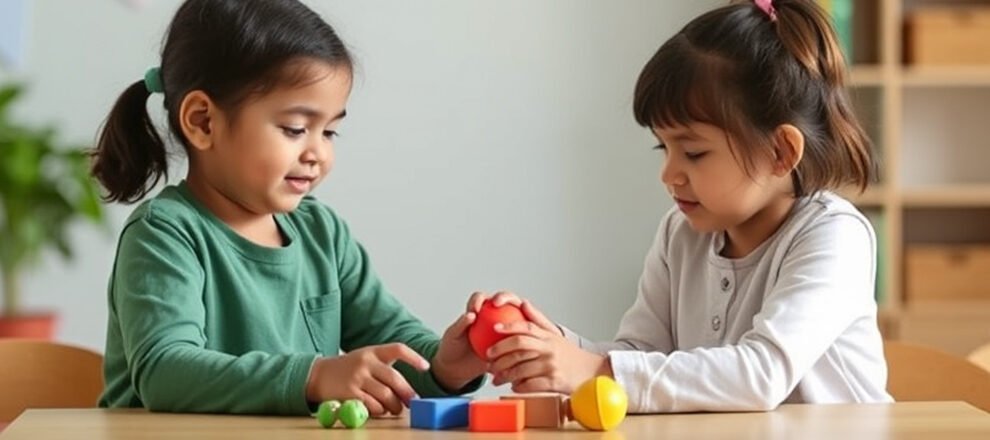Emotional intelligence (EI) is the ability to understand, manage, and express emotions effectively while recognizing and responding to the emotions of others. It plays a crucial role in building meaningful relationships and navigating the challenges of life. Montessori education, with its child-centered approach, fosters the development of emotional intelligence in ways that are both natural and impactful.
Here’s how Montessori children exhibit emotional intelligence:
1. Self-Awareness: Recognizing Their Emotions
Montessori environments encourage children to understand their own feelings. Through reflective practices like journaling, quiet time, and conversations with teachers, children learn to identify and articulate their emotions. Materials and lessons are designed to build focus, helping children recognize how their mood and feelings influence their actions.
For instance, during Grace and Courtesy lessons, children practice identifying emotions through facial expressions and role-playing scenarios, helping them develop a strong emotional vocabulary.
2. Self-Regulation: Managing Emotions Constructively
The Montessori emphasis on freedom within limits allows children to develop self-regulation. They choose their activities, set their own pace, and work independently. This autonomy teaches them to manage their impulses and frustrations.
For example, if a child feels upset or overwhelmed, Montessori classrooms often have a “peace corner” where they can go to calm down. Such practices instill habits of self-soothing and emotional control from an early age.
3. Empathy: Understanding Others’ Feelings
Montessori education nurtures empathy by emphasizing collaboration and respect. Mixed-age classrooms encourage older children to help younger ones, fostering an environment of care and understanding. Activities like group projects and storytelling help children step into others’ shoes and see the world from different perspectives.
By discussing real-life scenarios or reading stories about diverse cultures and experiences, children learn to appreciate and respond to the emotions of others.
4. Social Skills: Building Relationships
Montessori children are taught the importance of clear and respectful communication. Grace and Courtesy lessons guide them on how to greet someone, apologize, or express gratitude. These practical life skills are the foundation of building strong social connections.
Group activities, such as preparing a snack together or organizing a classroom celebration, teach teamwork, cooperation, and conflict resolution—key components of emotional intelligence.
5. Intrinsic Motivation: Handling Challenges with Resilience
Montessori education focuses on intrinsic motivation rather than external rewards. Children learn to set personal goals and experience the satisfaction of achieving them. This builds resilience and a growth mindset, helping them view challenges as opportunities to grow.
When children face difficulties, Montessori guides encourage them to reflect on their emotions and find solutions, empowering them to handle setbacks constructively.
6. Conflict Resolution: Solving Problems Peacefully
Montessori classrooms promote peaceful conflict resolution. Children are guided to express their feelings and listen to others in a respectful manner. They learn to use “I” statements, such as “I feel upset when you take my toy,” which helps in resolving conflicts without aggression.
Through consistent practice, Montessori children develop the skills to mediate disagreements and find mutually beneficial solutions.
7. Mindfulness: Staying Present in the Moment
Mindfulness is naturally integrated into Montessori activities. The careful handling of materials, the calm and orderly environment, and the focus on one task at a time teach children to be fully present. This mindfulness helps them stay connected to their emotions and respond thoughtfully rather than react impulsively.
Why Emotional Intelligence Matters
Research shows that emotional intelligence is a better predictor of success in life than IQ. Montessori children, with their strong foundation in EI, grow up to be empathetic leaders, effective communicators, and resilient individuals.
By fostering emotional intelligence through practical experiences, Montessori education equips children with the tools to navigate the complexities of life with confidence, compassion, and grace.
Closing Thoughts
The Montessori method nurtures not just academic excellence but also the emotional well-being of children. By providing a supportive environment that values emotional intelligence, Montessori children are better prepared to understand themselves, connect with others, and contribute positively to the world.





Leave a Reply